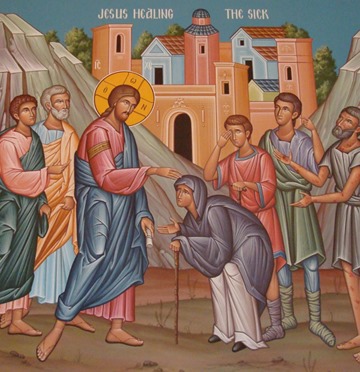 Read: Ephesians 2:14-22
Read: Ephesians 2:14-22
Luke 13:10-17
This Sunday, Jesus heals a woman bent over so she could not walk straight. “And a woman was there who for eighteen years had been crippled by a spirit; she was bent over, completely incapable of standing erect. When Jesus saw her, he called to her and said, “Woman, you are set free of your infirmity. (Luke 13:11-12)” Being bent over, the woman could see only the dirt before her, she could not lift up her eyes and see the trees, the towns, the horizon or the sky. She was not guilty of her infirmity, and Jesus had mercy.
Again, however, the Pharisees could not see the true moral horizon, putting the Sabbath law above the woman’s health, and so Jesus brands them, “Hypocrites. (Luke 13:15)” We all are that woman, but is it because of illness or our own will? We are short-sighted, we see only the dirt in front of us, and we do not see the horizon. We see only what we want to see, and hear only what we want to hear. We need the gift of wisdom to see the horizon, to see what is true.
See what the first thing the woman does when she is healed – she glorifies God. That is the greatest glory we have as human beings, we are able to see the vast expanse of the universe, something no other creature on earth can do, and we are able to give glory to God who created it all! Fr. Robert Taft gave an interview in November of 2009 in which he responded to the question: What do we get out of the Liturgy? His response was, “What you get out of the liturgy is the privilege of glorifying almighty God.” God, “who made both one and broke down the dividing wall of enmity (Ephesians 2:14),” lifts up our eyes today, glory to God!
Meditation by Archpriest David Petras
#ByzantineCatholicNewHaven
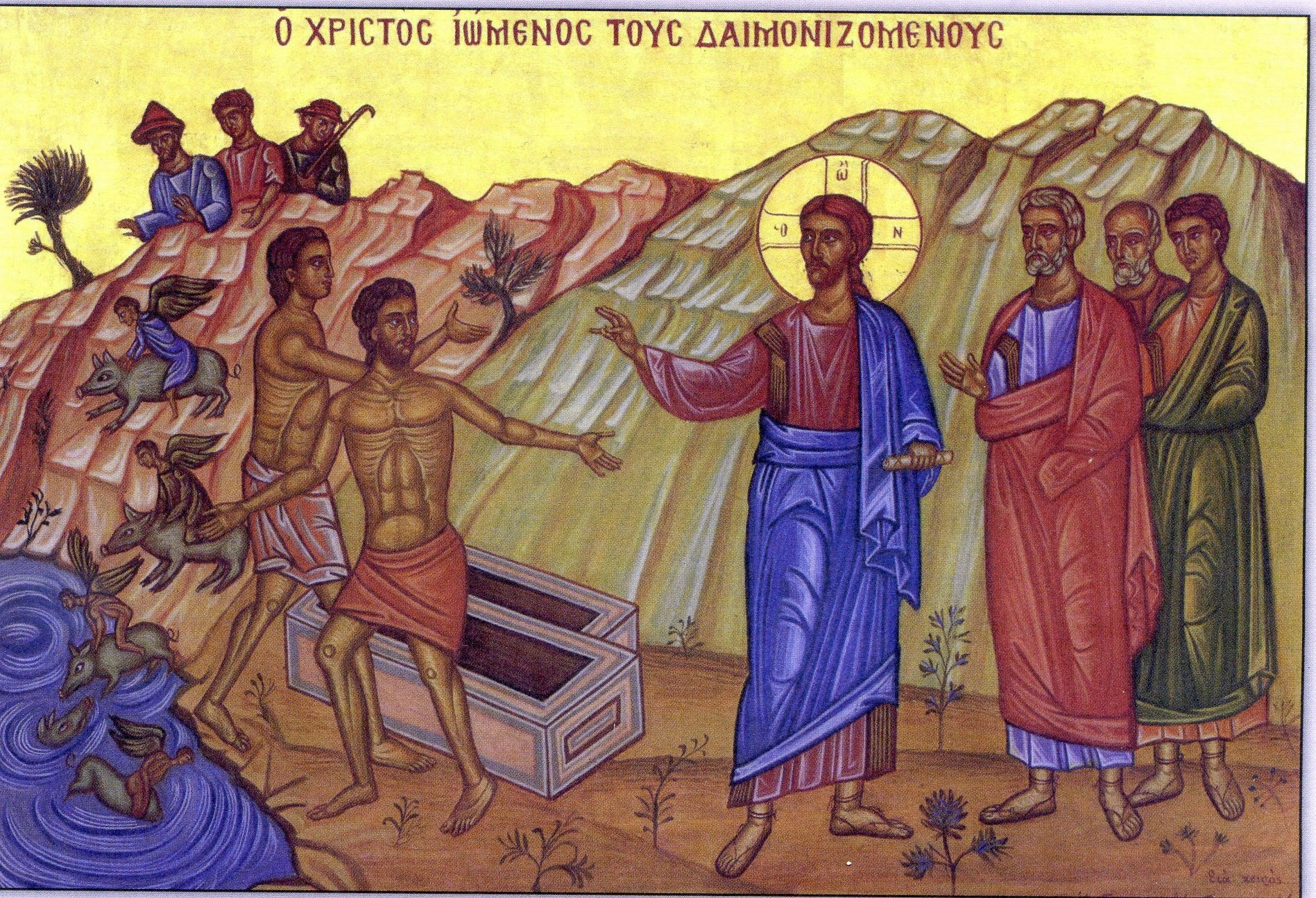 Read: Luke 8:26-39
Read: Luke 8:26-39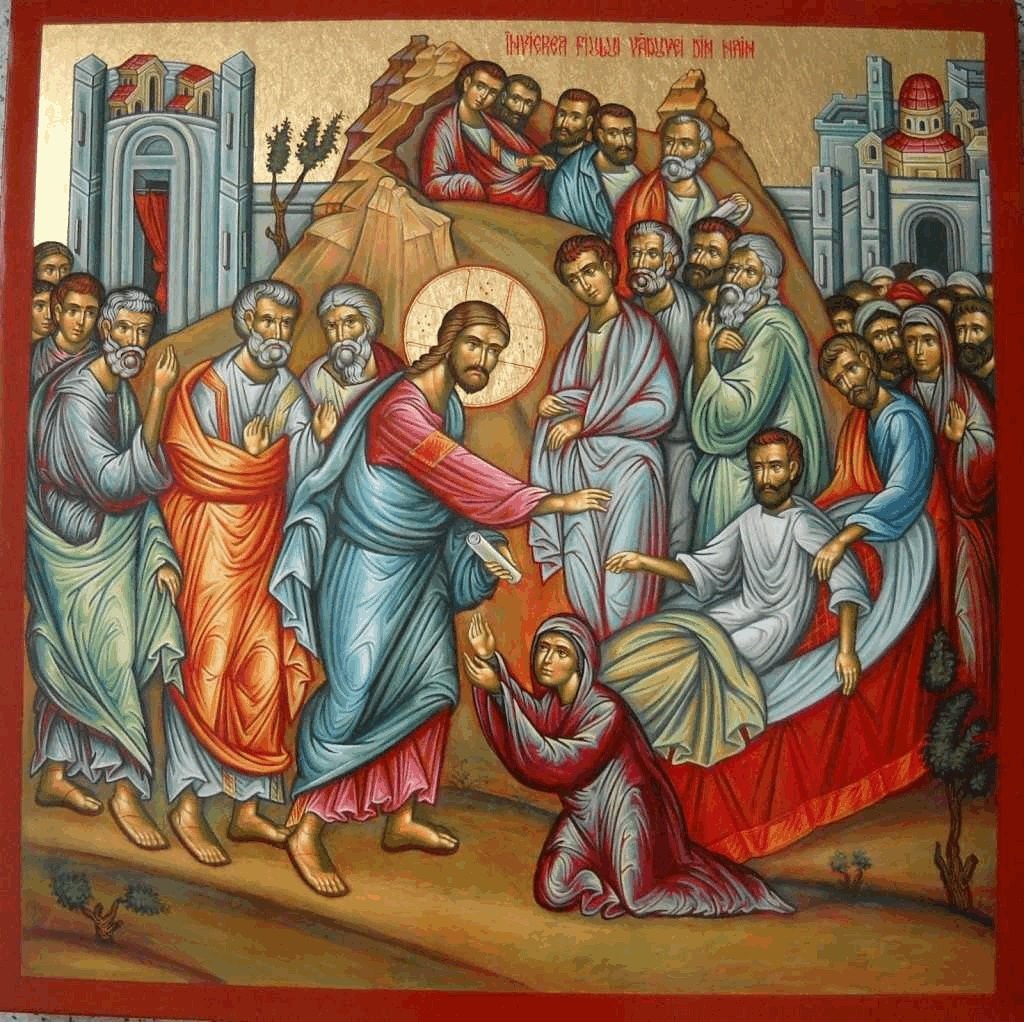 Seventeenth Sunday after Pentecost, 2019
Seventeenth Sunday after Pentecost, 2019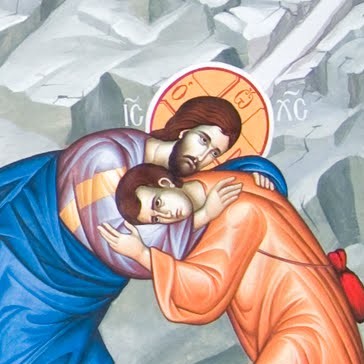 Read: 1 Corinthians 9:2-12; Matthew 18:23-35
Read: 1 Corinthians 9:2-12; Matthew 18:23-35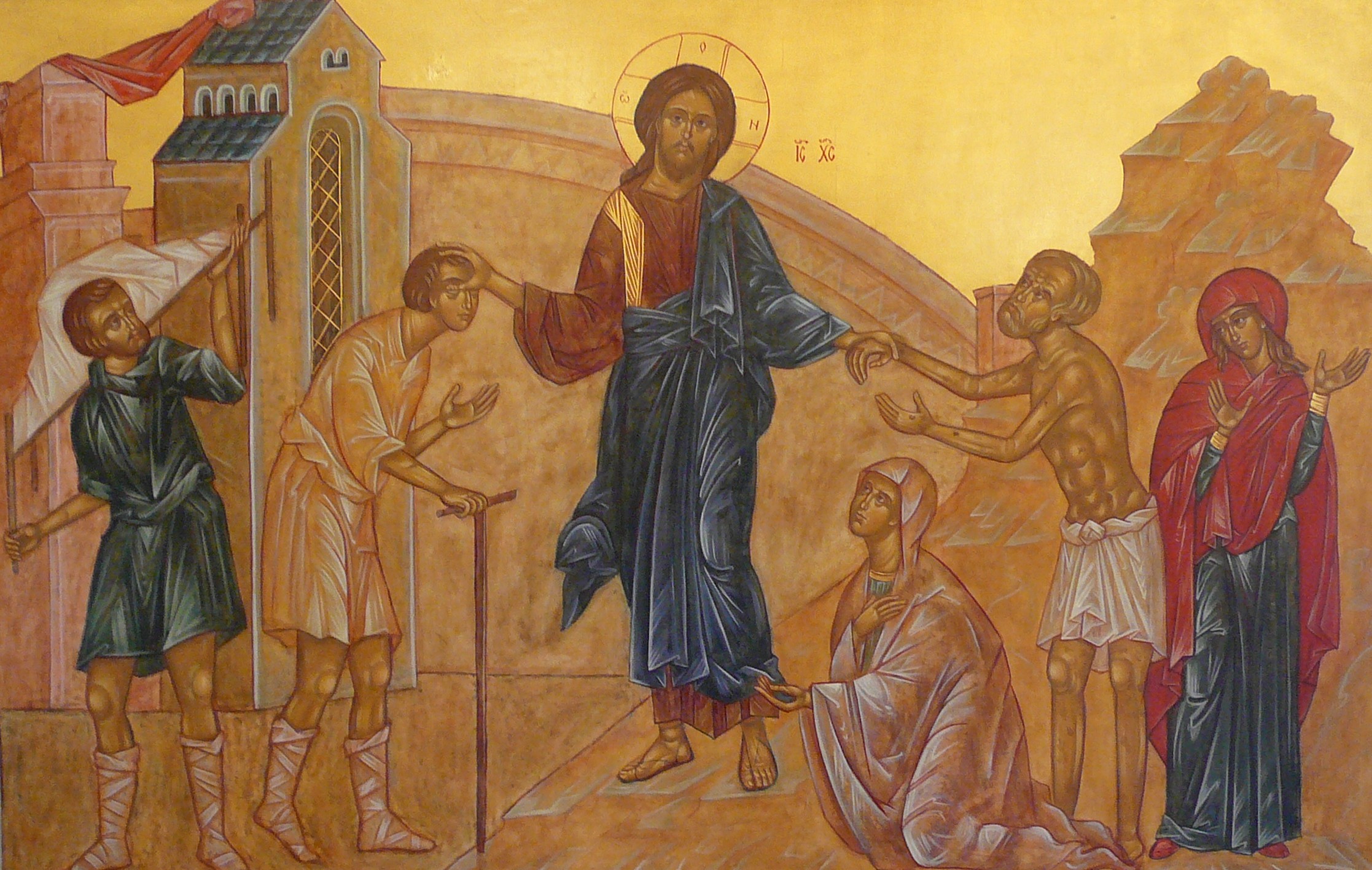 Read: Romans 15:1-7; Matthew 9:27-35
Read: Romans 15:1-7; Matthew 9:27-35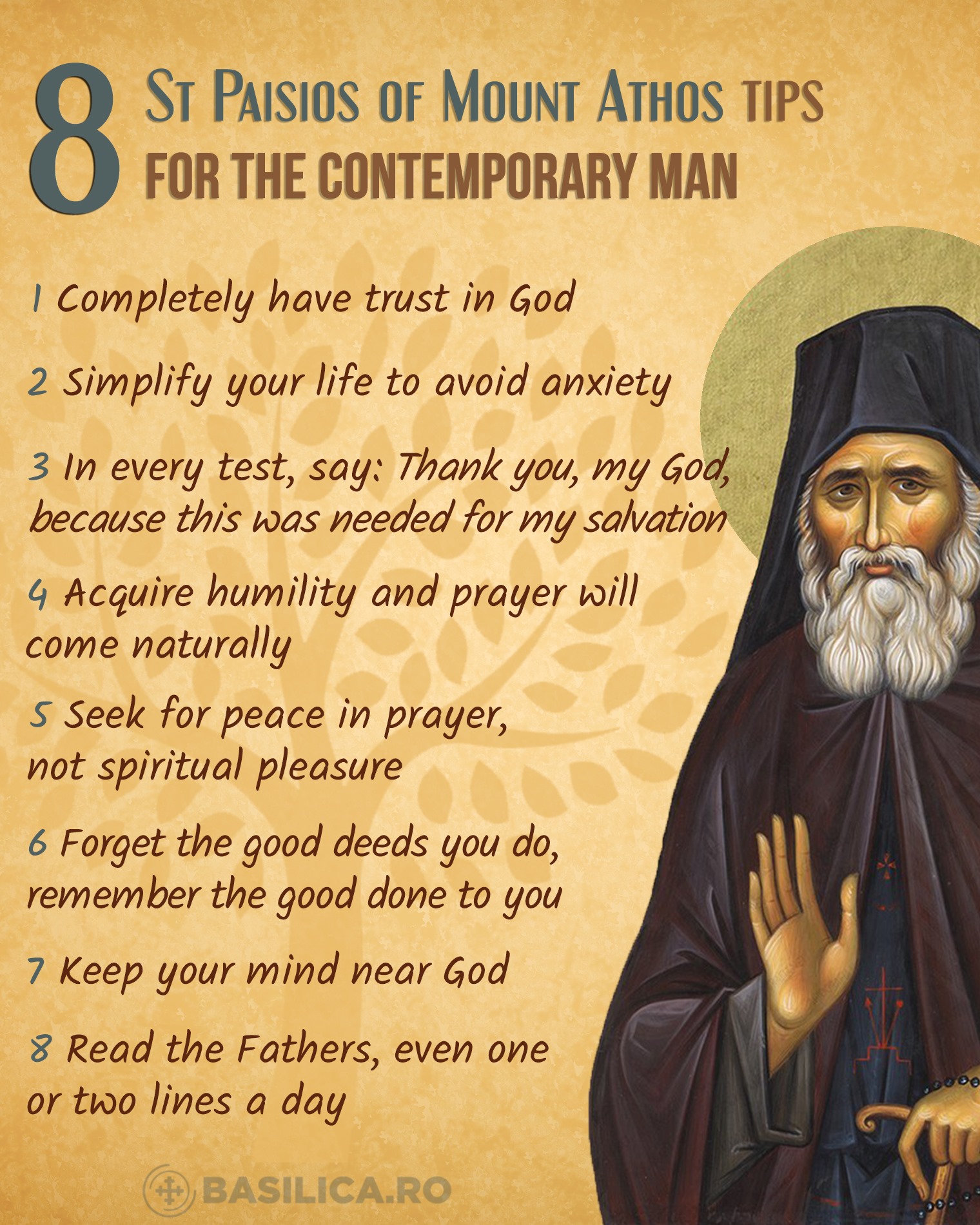
 “As Mothers, We Live the Works of Mercy Each Day in Our Homes”
“As Mothers, We Live the Works of Mercy Each Day in Our Homes”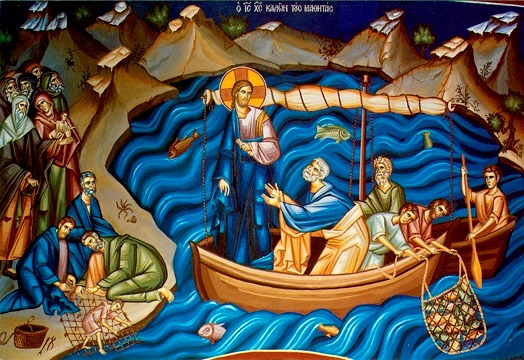 Read: Romans 2:10-16; Matthew 4:18-23
Read: Romans 2:10-16; Matthew 4:18-23